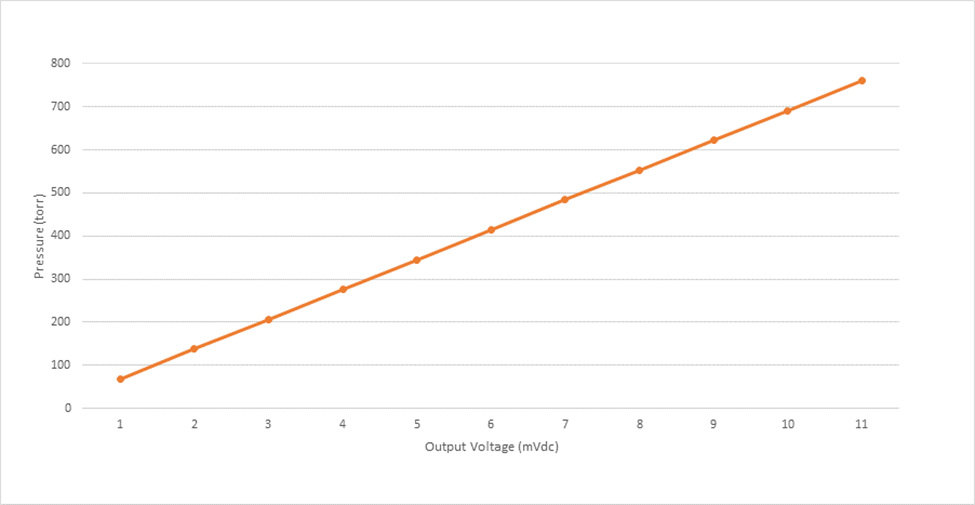I'm going to use the TC 531, a thermocouple vacuum gauge, and I want to know the relationship between the vacuum value and the pressure, and if there is a detailed mathematical formula to accurately represent their relationship
I'm going to use the TC 531, a thermocouple vacuum gauge, and I want to know the relationship between the vacuum value and the pressure, and if there is a detailed mathematical formula to accurately represent their relationship
There is not a mathematical formula but there is this graph.

The Agilent 531 and 536 TC gauges are designed to work with gauge controllers with an internal voltmeter and current source.
Thermocouple vacuum gauges work by measuring the potential difference between two conductors (TC wires) with different temperature coefficients.
The two conductors are placed in contact with each other at one end, and the other end is connected to a voltage source.
The filament provides the heat with 165mA current source.
When the two conductors are at different temperatures, a potential difference develops between them.
This potential difference can be used to measure the vacuum pressure.
There is not a mathematical formula but there is this graph.

The Agilent 531 and 536 TC gauges are designed to work with gauge controllers with an internal voltmeter and current source.
Thermocouple vacuum gauges work by measuring the potential difference between two conductors (TC wires) with different temperature coefficients.
The two conductors are placed in contact with each other at one end, and the other end is connected to a voltage source.
The filament provides the heat with 165mA current source.
When the two conductors are at different temperatures, a potential difference develops between them.
This potential difference can be used to measure the vacuum pressure.